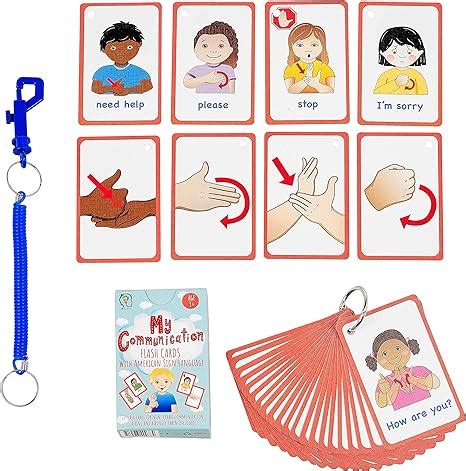Empathy is a cornerstone of emotional intelligence, essential for fostering meaningful connections and effective communication. For individuals with autism, understanding and expressing empathy can present unique challenges due to differences in social and emotional processing. Despite common misconceptions that those with autism lack empathy, research highlights a more nuanced reality. This article explores the intersection of autism and empathy, delving into how empathy manifests in individuals with autism, supported by recent research findings. We will discuss practical strategies for enhancing empathy, the crucial role of support systems, and how developing empathy can significantly impact social and communication skills. Understanding these dynamics is vital for promoting inclusivity and improving interpersonal interactions.
Explore this topic in-depth with rosawblog.com
1. Defining Empathy and Its Importance in Emotional Intelligence
Empathy, a crucial element of emotional intelligence, is the capacity to grasp and share the feelings of others. It entails identifying emotional states, understanding different perspectives, and responding with suitable emotional reactions. Through empathy, individuals can cultivate strong interpersonal connections, navigate social intricacies, and create supportive surroundings.
Empathy is a cornerstone of emotional intelligence, fostering richer communication and deeper connections. Through empathy, we gain a better understanding of non-verbal cues, enabling us to offer meaningful support and navigate conflicts more effectively. By aligning our responses with the emotions and needs of others, empathy enhances collaboration and promotes mutual understanding.
Individuals with autism may face unique challenges in expressing and perceiving empathy due to their distinct ways of processing social and emotional cues. Despite these challenges, fostering empathy is crucial for individuals with autism, as it greatly influences their ability to engage in meaningful social interactions and build healthy relationships. Recognizing the significance of empathy allows us to create more inclusive spaces that embrace diverse emotional expressions and provide support for developing essential interpersonal skills.

2. Common Misconceptions About Empathy in Autism
A common misconception surrounding autism is the notion that individuals with autism lack empathy entirely. This misunderstanding arises from the distinct way individuals with autism process social and emotional information, which can influence their outward displays of empathy. Nevertheless, research suggests that many individuals with autism do experience empathy, albeit in ways that may differ from those observed in neurotypical individuals.
It is often mistakenly believed that individuals with autism lack the capacity to comprehend or connect with the emotions of others. However, the truth is that they may possess a profound emotional understanding, yet encounter difficulties in interpreting the social signals that usually facilitate empathetic reactions. Some individuals with autism may also demonstrate empathy in unconventional manners, expressing it through their actions instead of verbal communication.
To cultivate a more inclusive understanding of empathy in autism, it is crucial to address common misconceptions. Recognizing the diverse ways in which empathy can manifest allows us to create supportive environments where autistic individuals can express their emotional understanding in ways that resonate with them.

3. Research Findings on Empathy and Autism
Recent research has unveiled the intricate nature of empathy in autism, debunking common misperceptions. Studies suggest that, while individuals with autism may exhibit unique ways of processing and expressing empathy, they possess the capacity for empathy nonetheless. For example, research has demonstrated that many individuals with autism can discern emotions and respond accordingly, although their responses might deviate from conventional social norms.
Research in neuroscience has revealed distinct patterns of brain activity associated with emotional processing and empathy in people with autism. These differences suggest that while individuals with autism experience empathy, the ways in which they express it may be different. Notably, some studies have shown that individuals with autism often demonstrate empathy through actions instead of verbal communication, highlighting the crucial need to recognize the variety of empathetic responses.
In conclusion, these findings highlight the importance of recognizing the diverse ways in which individuals with autism experience and express empathy. It is crucial to provide support that helps them cultivate and enhance their unique empathetic abilities.

4. Strategies for Enhancing Empathy in Individuals with Autism
To foster empathy in individuals with autism, personalized strategies that acknowledge their unique abilities and challenges are crucial. One effective approach is structured social skills training. This training helps individuals identify and interpret emotional cues. Role-playing scenarios are commonly used, allowing individuals to practice responding to diverse emotional situations in a safe and controlled setting. Additionally, visual supports, such as emotion charts and social stories, can greatly assist in both understanding and expressing empathy by offering clear and concrete examples of emotional reactions.
Another strategy is to engage in activities that foster emotional awareness, such as guided discussions about feelings and reactions. These activities can help individuals with autism articulate their own emotions and better understand others’ perspectives. Encouraging participation in group settings or team activities can also provide real-life opportunities to practice empathy and develop social skills.
Furthermore, integrating empathy training for family members and caregivers fosters a cohesive and supportive environment. This approach, by cultivating understanding and patience, enables caregivers to consistently encourage empathetic conduct during daily interactions.
Finally, fostering an inclusive environment that embraces and supports diverse expressions of empathy can help individuals with autism feel more comfortable and confident in their interactions. This inclusive approach not only enhances their empathetic abilities
5. Role of Support Systems in Developing Empathy
Strong support systems are essential for developing empathy in individuals with autism. These systems provide consistent, understanding, and structured environments that are crucial for their growth. Family members, caregivers, and educators can make a significant difference by interacting with and guiding these individuals. Through their support, they create an atmosphere that helps individuals with autism navigate social situations and emotional experiences with greater ease.
Support systems can implement strategies to foster empathy, such as modeling empathetic behavior, offering constructive feedback, and creating opportunities for practice. For example, caregivers can use everyday situations to discuss emotions and appropriate responses, reinforcing empathetic behaviors. Educators can integrate empathy training into the curriculum and facilitate group activities that promote social interactions.
Furthermore, support systems can play a vital role in promoting inclusive environments that acknowledge and embrace diverse expressions of empathy. By creating such spaces, individuals with autism feel appreciated and understood, leading to increased self-assurance and a greater willingness to engage empathetically. In conclusion, a robust support network is crucial for cultivating empathy and fostering meaningful social connections among individuals with autism.
6. Impact of Empathy on Social and Communication Skill
Empathy plays a crucial role in enhancing social and communication skills, especially for individuals with autism. Cultivating empathy allows individuals to build stronger connections with others, leading to smoother social interactions and more effective communication. By understanding and sharing the feelings of others, individuals can engage in more nuanced and meaningful exchanges, responding appropriately to emotional signals and contextual cues.
Empathy empowers individuals to navigate social complexities and resolve conflicts productively. This heightened emotional comprehension cultivates positive relationships and minimizes social misunderstandings. Furthermore, empathy promotes active listening and empathetic responses, both essential elements of effective communication.
Individuals with autism can gain increased confidence in social settings by developing their empathy skills. Practicing empathetic behaviors allows them to interact more comfortably with peers and participate more fully in group activities. Empathy also plays a crucial role in understanding and responding to non-verbal communication, which can be challenging for those on the autism spectrum.
Developing empathy not only strengthens interpersonal relationships but also improves overall social competence and communication skills. This allows individuals with autism to form deeper connections, navigate social situations more comfortably, and make meaningful contributions to their communities.
Understanding and enhancing empathy in individuals with autism is crucial for fostering emotional intelligence and improving social interactions. By addressing misconceptions, leveraging research findings, and implementing effective strategies, we can support individuals in developing their empathetic abilities. The role of supportive networks is vital in this process, creating environments where diverse expressions of empathy are valued. Ultimately, enhancing empathy leads to stronger social connections and better communication skills, enriching the lives of individuals with autism.
rosawblog.com
